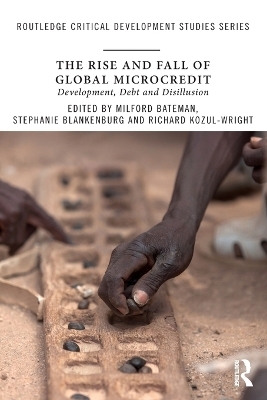
The Rise and Fall of Global Microcredit
Routledge (Verlag)
978-1-138-71412-0 (ISBN)
In the mid-1980s the international development community helped launch what was to quickly become one of the most popular poverty reduction and local economic development policies of all time. Microcredit, the system of disbursing tiny micro-loans to the poor to help them to establish their own income-generating activities, was initially highly praised and some were even led to believe that it would end poverty as we know it. But in recent years the microcredit model has been subject to growing scrutiny and often intense criticism. The Rise and Fall of Global Microcredit shines a light on many of the fundamental problems surrounding microcredit, in particular, the short- and long-term impacts of dramatically rising levels of microdebt.
Developed in collaboration with UNCTAD, this book covers the general policy implications of adverse microcredit impacts, as well as gathering together country-specific case studies from around the world to illustrate the real dynamics, incentives and end results. Lively and provocative, The Rise and Fall of Global Microcredit is an accessible guide for students, academics, policymakers and development professionals alike.
Milford Bateman, Visiting Professor of Economics, Juraj Dobrila at Pula University, Croatia, and Adjunct Professor of Development Studies, St Mary's University, Halifax, Canada. Stephanie Blankenburg is Head of the Debt and Development Finance Branch, Division on Globalization and Development Strategies, UNCTAD. Richard Kozul-Wright is Director of the Division on Globalization and Development Strategies, UNCTAD.
Contents
Preface
Acronyms
Notes on contributors
Part I: An overview
Introduction
Milford Bateman, Stephanie Blankenburg and Richard Kozul-Wright
Development prospects in an era of financialization
Richard Kozul-Wright
Impacts of the microcredit model: does theory reflect actual practice?
Milford Bateman
Part II: Country case studies
Looking through the glass, darkly: microcredit in Peru
Matthew D. Bird
Brazil: Latin America’s unsung hero
Fernanda Feil and Andrej Slivnik
Colombia: A critical look
Daniel Munevar
Mexico and the microcredit model
Eugenia Correa and Laura Vidal
Sustainability paradigm to paradox: a study of microfinance clients’ livelihoods in Bangladesh
Mathilde Maitrot
Cambodia: the next domino to fall?
Milford Bateman
The instability of commercial microcredit: understanding the Indian crisis with Minsky
Philip Mader
11. Collective resistances to microcredit in Morocco
Solène Morvant-Roux and Jean-Yves Moisseron
12. Microcredit as post-apartheid South Africa’s own US-style sub-prime crisis
Milford Bateman
Part III: Policy implications
13. Delivering development finance in ‘the time of cholera’: a ‘bottom-up’ agenda for pro-development financial resource mobilisation
Stephanie Blankenburg
14. Conclusion
Milford Bateman, Stephanie Blankenburg and Richard Kozul-Wright
| Erscheinungsdatum | 18.09.2018 |
|---|---|
| Reihe/Serie | Routledge Critical Development Studies |
| Zusatzinfo | 9 Tables, black and white; 11 Line drawings, black and white; 11 Illustrations, black and white |
| Verlagsort | London |
| Sprache | englisch |
| Maße | 156 x 234 mm |
| Gewicht | 430 g |
| Themenwelt | Naturwissenschaften ► Geowissenschaften ► Geografie / Kartografie |
| Sozialwissenschaften ► Soziologie ► Spezielle Soziologien | |
| Betriebswirtschaft / Management ► Spezielle Betriebswirtschaftslehre ► Bankbetriebslehre | |
| Wirtschaft ► Volkswirtschaftslehre | |
| ISBN-10 | 1-138-71412-7 / 1138714127 |
| ISBN-13 | 978-1-138-71412-0 / 9781138714120 |
| Zustand | Neuware |
| Informationen gemäß Produktsicherheitsverordnung (GPSR) | |
| Haben Sie eine Frage zum Produkt? |
aus dem Bereich


